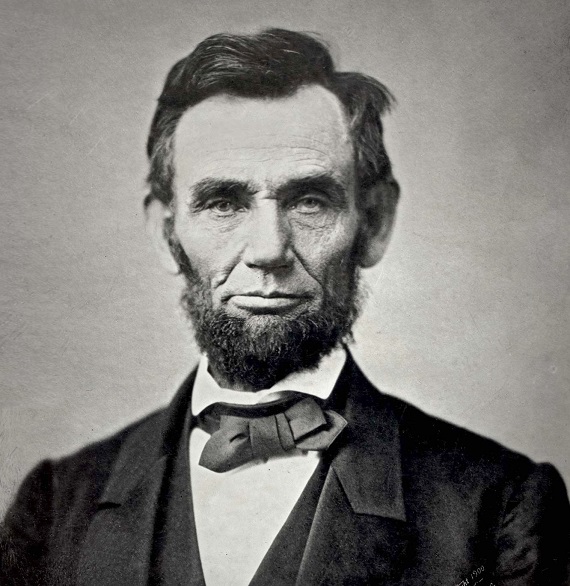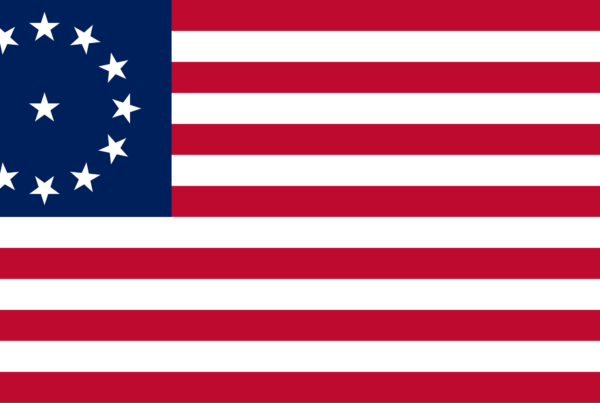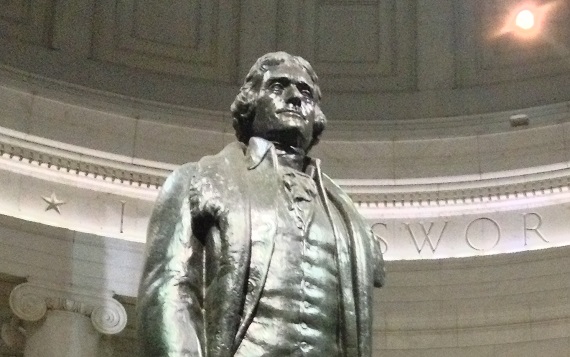The most frequent question I have received during promotion of my new book, 9 Presidents Who Screwed Up America and Four Who Tried to Save Her, has been, “How can you say that Lincoln screwed up America?”
After all, he is the man who saved the Union and who put slavery on the path to extinction.
There should be a qualifier…at the expense of the Constitution.
Lincoln’s crimes against the Constitution are not as well-known as they should be, but historians and legal scholars, even mainstream academics, have begun to take a hard look at the lasting legacy of Lincoln’s abuse of executive power, particularly in the last decade.
Lincoln was called a dictator and a tyrant by many Northern opponents, was publicly castigated by former presidents Franklin Pierce and James Buchanan and famous authors Nathaniel Hawthorne and Herman Melville, and barely squeaked by in the 1864 election even though the war was in hand and he only had to win Northern votes. That should say something about his reputation among his peers, but how did he “screw up” America and the Constitution?
Lincoln unilaterally suspended habeas corpus, a power not delegated to the executive branch by the Constitution. This resulted in the incarceration of over 30,000 Northern civilians for the crime of opposition to the Lincoln administration and the War. Lincoln’s Attorney General, Edward Bates, tried to justify Lincoln’s move, but many constitutional scholars were not buying it, and though the Congress later rubber stamped the move by suspending habeas corpus themselves, it did not change the fact that Lincoln acted outside the law and suppressed American civil liberties in the name of unconstitutional and imaginary “war powers.”
Lincoln also signed into law a slew of unconstitutional legislation, including a shiny new central banking system—long opposed by Southerners and many Northerners as being a clear violation of Article I, Section 8—and the first income tax in American history. If Lincoln believed his oath to “defend” the Constitution, both of these egregious pieces of legislation would have met his veto pen.
Even the War itself was constitutionally dubious. Lincoln did not have a declaration of war. He knew that such a move would have recognized the legitimacy of secession both by law and in fact, so he adopted the position that the Southern States were in “rebellion.” The Constitution is clear on federal power in relation to “insurrection” or “domestic violence,” in other words “rebellion.” Article IV, Section 4 allows for the federal government to protect the States against “domestic violence” only through the application of the State legislature or through the State executive. Lincoln had neither. Article I, Section 8 allows the Congress to call forth the militia to “suppress Insurrections,” but that power is qualified by Article IV, Section 4, and Congress did not call forth the militia; Lincoln did. Another unconstitutional move by the “Great Emancipator.”
And speaking of emancipation, Lincoln is given credit for putting slavery on the path to extinction. But did he do it constitutionally? No, says Massachusetts abolitionist and former Supreme Court Justice Benjamin Robbins Curtis. In a stinging rebuke to Lincoln’s Emancipation Proclamation, Curtis wrote: “If the President, as commander-in-chief of the army and navy in time of war, may, by an executive decree, exercise this power to abolish slavery in the States, which power was reserved to the States, because he is of opinion that he may thus “best subdue the enemy,” what other power, reserved to the States or to the people, may not be exercised by the President, for the same reason that he is of opinion he may thus best subdue the enemy? And, if so, what distinction can be made between powers not delegated to the United States at all, and powers which, though thus delegated, are conferred by the Constitution upon some department of the Government other than the Executive?” Good question, and one that Northerners answered with “nobody cares whether it is constitutional or not.”
As for Lincoln, he said, “as commander-in-chief of the army and navy, in time of war, I suppose I have a right to take any measure which may best subdue the enemy.” Curtis and the founding generation disagreed.
The glorification of the Lincoln administration by those who profess to be “constitutional conservatives” exposes a glaring problem in American politics, namely the blatant hypocrisy of the American right. Conservatives often whine when Barack Obama abuses power through executive orders, signing statements, illegal bombing raids in Syria, non-recess recess appointments, and the like, but turn a blind eye to George W. Bush’s abuse of power through executive orders, signing statements, and illegal bombing raids in the Middle East. Obama has said many times Bush did it, too. And he is right. Executive abuse didn’t start with Obama.
And it didn’t start with Bush as the Left would suggest.
There are countless examples in American history of executive abuse, many from the “sacred cows” of American politics. If Americans want to be honest stewards of good government, and by good government I mean constitutional government, we need to hold every president who abused power accountable, even “Honest Abe.” That is the only way we can truly resurrect the federal republic the founding generation created when they formed the Union. American can be made “great again,” but it is going to take a concerted effort by the American people to hold the next president accountable to his oath of office.







